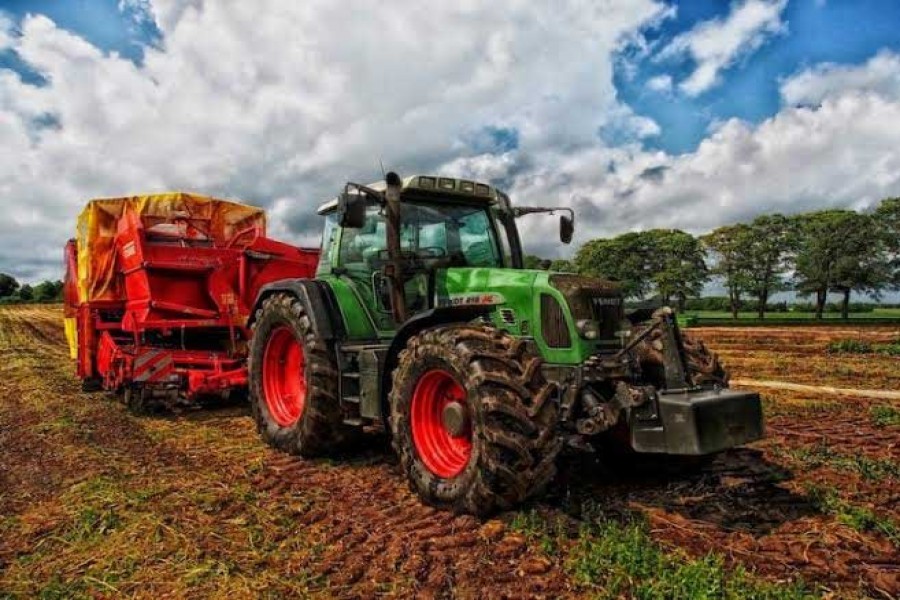The government's agricultural mechanisation policy providing for, among others, subsidies and loan facilities for procuring farm machines and tools by farmers is no doubt admirable. Clearly, this has been prompted by the shift already noticeable in the use of technology in the country's cultivation pattern, as well as the need for raising production and crop intensity. In order to encourage increased use of technology, the government is currently giving 70 per cent subsidy to farmers in the haor areas and 50 per cent subsidy to farmers in the rest of the country to buy mechanised agri implements. Last week, at a workshop titled 'Agricultural Mechanisation Project through Integrated Management' held in the capital, representatives of farmers' associations, machinery importers and retailers urged upon the government to raise the subsidy further, preferably to 80 per cent, across the board to facilitate buying of various machinery and equipment by farmers-- some of which are exorbitantly costly and integral to full-fledged mechanisation.
Mechanisation in the country's major crop cultivation is mostly confined to the use of power tillers, tractors and power pumps. There are other important areas in cultivation where more and more mechanisation and advanced technology need to be introduced. In the aforementioned workshop speakers pointed out the need for machines such as combined harvester which because of its very high cost is far beyond the reach of farmers despite the subsidy presently available. The country needs thousands of this machine, and its procurement can only be made affordable (price ranging between Tk 1.4 and Tk 1.5 million) through enhanced subsidy. Beside the highly priced combined harvester, use of some other machinery and equipment such as seeder, transplanter and power thresher can also be much eased by further facilitation in terms of raising subsidy and easy loan terms.
Mechanisation is believed to be the only way to cause a massive change by way of increased productivity at lower costs than now, especially in paddy cultivation. In the Asian region, countries that have reaped the most from mechanised cultivation are China and Thailand. For Bangladesh, this is a transition phase. To encourage farmers to embrace mechanisation, schemes must be in place to provide affordable ways for procuring necessary tools and implements. Formation of cooperative societies comprising small farmers could expand the facility to a hugely larger number of farmers. Non-governmental organisations (NGOs) can also have a meaningful role to play in this regard.
Now, in view of the high price of the machinery as flagged by the stakeholders, it is clear that importing them by importers and marketing them by retailers are likely to be snagged if the prices remain beyond the affordability of the farmers even with the currently available subsidy. This is an issue that the authorities need to examine at length to see whether it seriously poses to thwart the government's agri-mechanisation policy. If it is found so requiring a further push in subsidy to allow farmers access the machinery and tools, there is definitely a need to revisit the subsidy programme to make it meaningful.


